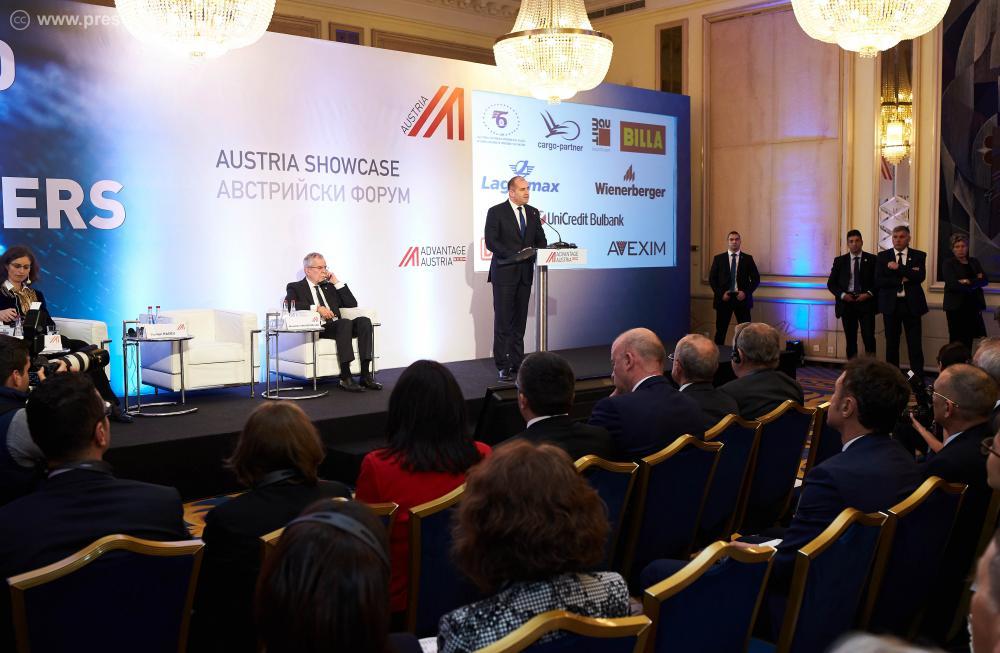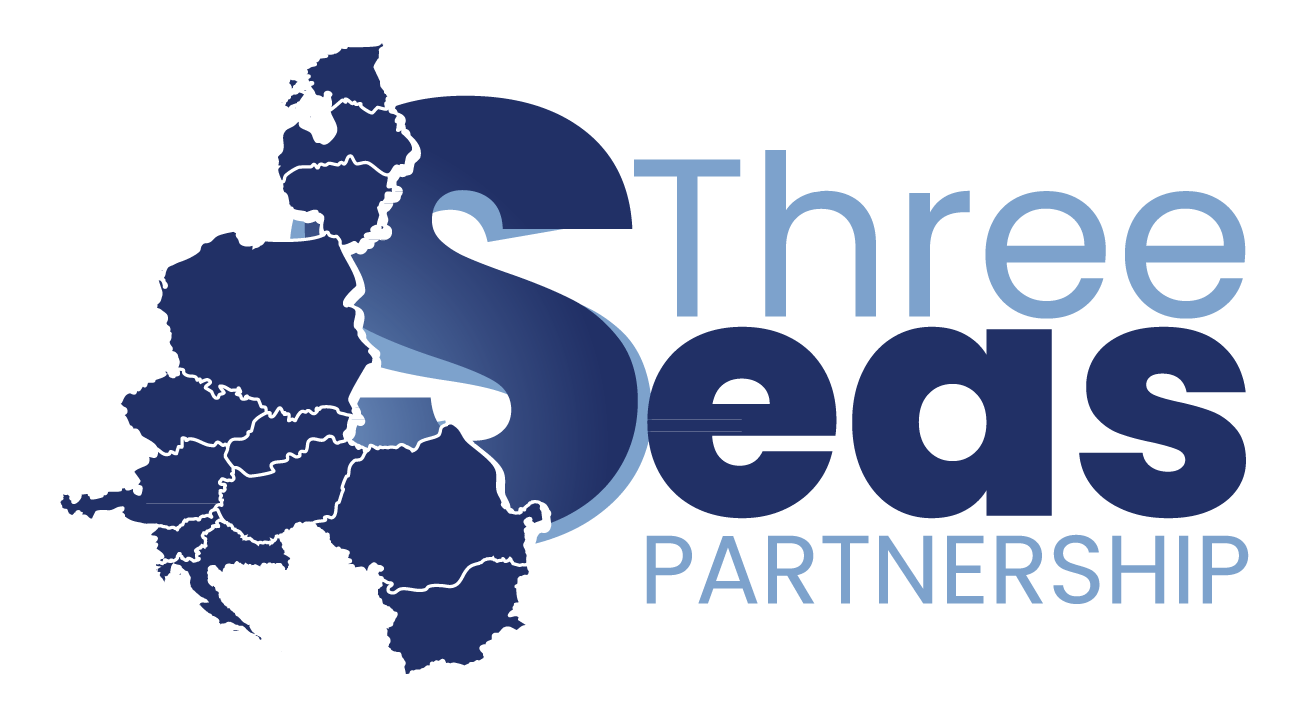Austria postrzega Inicjatywę Trójmorza jako użyteczny format i spodziewa się czerpać korzyści z jej członkostwa

Wikimedia Commons (В. Николов) https://www.president.bg/photo-gallery4389/austrian-president-alexander-van-der-bellen-arrived-on-an-official-visit-to-bulgaria.html&lang=en
Austria has been a supporter of the Three Seas Initiative (3SI) from its very start in 2016. Even though Austria’s economic development and infrastructure are more advanced compared to the other member states of the Initiative, the country expects to profit from its membership economically but also politically.[1] Austria sees its role as a bridge builder between Western and Eastern member states. Due to its geographical position in the centre of the EU, the 3SI offers Austria a great opportunity to consolidate this position, however the country’s good relations to Russia could complicate the situation in this regard in the light of the current developments.[2] In contrast to other member states of the initiative, Austria maintains a relatively good relationship with Russia, their energy partnership is particularly tight as Austria was 80 percent dependent on Russian gas at the beginning of this year.[3] In the last 3 months however was able to reduce this dependence down to 50 precent.[4] Austria is significantly invested in the energy, banking and commodities sector in Russia and is aware and willing to diversify away from Moscow sooner rather than later.[5] This shift could be sped up by Austria´s more intensive cooperation with the other countries from 3SI and Ukraine under the format umbrella. Contrary to other members such as Poland and the Baltic states, Austria has been slow in diversifying its energy supply from Russia until now, the main reason being the fact that, the country has established itself as an energy hub for Russian supplies to the European market over many decades. The 3SI may provide workable solutions for Austria which is on its way towards renewable energy sources and a circular economy. Austria is currently interested not only in green hydrogen from the Emirates, but also in LNG. There is a large gas pipeline project from Romania to Austria, the so- called BRUA project, that is high on Austria´s agenda. The 3SI is highly decentralised and project-based which suits Austrian interests.[6] Austria plays an important role in the Baltic—Adriatic European Trans-European Transport Network (TEN-T) Core Network Corridor. Another relevant project for the country is the construction of the second railway track to ensure capacity and reliability of traffic to and from the port of Koper. It connects the port of Koper with these countries, and it represents the main port for the Republic of Austria and Hungary. One of the 3SI’s priority projects important for Austria is also the Fairway Danube.[7]
When it comes to actual contributing, Austrian efforts in the Three-Seas-Initiative are still considerably underdeveloped nor has Austria decided to join the Three Seas Initiative Investment Fund (3SIIF).[8] The country still has to decide how to define its role in the Three Seas Initiative clearer so it does not become a free-rider in terms of investment gaps and infrastructure requirements compared to the CEE countries. Vienna should develop a new formula to connect the 3SI countries with Ukraine and the rest of Europe in Brussels and the West. Austria is a strong supporter of the enlargement of the Western Balkan countries and may play a positive role in propagating the importance of a membership perspective for Ukraine among the EU members. It should grab the opportunity to diversify its ‘bridge-building’ role towards the north—south connectivity corridors instead of maintaining its outdated east—west approach, following Russia’s war in Ukraine. Austria should consider joining the 3SIIF and enhance its political profile within the format. It should send higher-ranked representatives to the business forums and summits to show an increased presence and interest. If the Initiative ever emerges with projects that require more direct multi-party cooperation, Austria will have to show more effort and invest resources.[9] The Three Seas Initiative is more important today than ever before and the Russian attack on Ukraine showed this necessity. As a result, the 3SI countries want to cooperate more on infrastructure, energy supply and security.[10] The growing mistrust towards Russia following the war on Ukraine caused the countries to strive for deeper cooperation with the US and Vienna favours the pro-American approach of the initiative as well. Given that the EU and the US will intensify their bilateral cooperation in various fields such as energy, trade, technological transfer and security, the 3SI is emerging as a pivotal platform for diversifying Austrian bilateral and multilateral relations with the Atlantic allies and partners within the CEE region.[11]
Lívia Benko
[1] Kornis, V. Austria’s Perspective on the Three-Seas-Initiative. Friedrich Naumann Fondation, 2022. https://www.freiheit.org/central-europe-and-baltic-states/austrias-perspective-three-seas-initiative-0
[2] Tchakarova, V. Benko, L. Austria: The bridge-building approach to the Three Seas
Initiative — avenues for improvement. Latvian Institute for International Affairs, Three Seas Initiative: Mapping National Perspectives, 11-27, 2022. https://www.aies.at/download/2022/Three_Seas_Initiative_2022.pdf
3 Kornis, V. Austria’s Perspective on the Three-Seas-Initiative. Friedrich Naumann Fondation, 2022. https://www.freiheit.org/central-europe-and-baltic-states/austrias-perspective-three-seas-initiative-0
4 Hernik, J. Three Seas Partnership – Slovakia and Austria in the Three Seas Initiative. Warsaw Institute Event. 2022. https://warsawinstitute.org/event/three-seas-partnership-slovakia-austria-three-seas-initiative/
[5] Tchakarova, V. Benko, L. Austria: The bridge-building approach to the Three Seas
Initiative — avenues for improvement. Latvian Institute for International Affairs, Three Seas Initiative: Mapping National Perspectives, 11-27, 2022. https://www.aies.at/download/2022/Three_Seas_Initiative_2022.pdf
[6] Tchakarova, V. Benko, L. Austria: The bridge-building approach to the Three Seas
Initiative — avenues for improvement. Latvian Institute for International Affairs, Three Seas Initiative: Mapping National Perspectives, 11-27, 2022. https://www.aies.at/download/2022/Three_Seas_Initiative_2022.pdf
[7] Priority Projects. 2022. https://3seas.eu/about/progressreport
[8] Tchakarova, V. Benko, L. Austria: The bridge-building approach to the Three Seas
Initiative — avenues for improvement. Latvian Institute for International Affairs, Three Seas Initiative: Mapping National Perspectives, 11-27, 2022. https://www.aies.at/download/2022/Three_Seas_Initiative_2022.pdf
[9] Tchakarova, V. Benko, L. Austria: The bridge-building approach to the Three Seas
Initiative — avenues for improvement. Latvian Institute for International Affairs, Three Seas Initiative: Mapping National Perspectives, 11-27, 2022. https://www.aies.at/download/2022/Three_Seas_Initiative_2022.pdf
[10] Three Seas Initiative. Support for Ukraine pledged at the Three Seas Initiative Summit National Coordinators’ meeting. 2022. https://3seas.eu/media/news/support-for-ukraine-pledged-at-the-three-seas-initiative-summit-national-coordinators-meeting?lang=en
[11] Tchakarova, V. Benko, L. Austria: The bridge-building approach to the Three Seas
Initiative — avenues for improvement. Latvian Institute for International Affairs, Three Seas Initiative: Mapping National Perspectives, 11-27, 2022. https://www.aies.at/download/2022/Three_Seas_Initiative_2022.pd
Sfinansowano ze środków Narodowego Instytutu Wolności – Centrum Rozwoju Społeczeństwa Obywatelskiego w ramach Rządowego Programu Fundusz Inicjatyw Obywatelskich NOWEFIO na lata 2021-2030.
